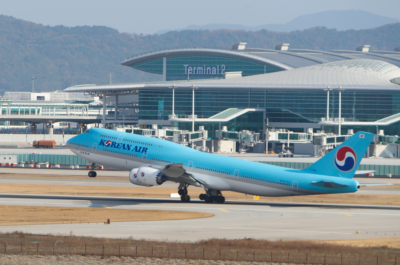Japan and Thailand’s appeal diminish among Chinese tourists, reveals China Trading Desk’s Travel Sentiment Survey.
SINGAPORE – Japan and Thailand, both consistently popular destinations for Chinese tourists, have lost significant appeal to Chinese considering their next vacations, according to China Trading Desk’s most recent Travel Sentiment Survey.
China Trading Desk, which polls 10,000 Chinese quarterly about their overseas travel plans, found that Japan fell from the most popular destination in the second quarter of this year to the 8th most popular. Thailand, which began this year as Chinese tourists’ most popular destination, fell to 6th most popular in the third quarter.
“In the case of Japan, the recent release of Fukushima’s treated radioactive wastewater into the ocean has significantly affected how Chinese think about traveling there,” explained China Trading Desk Founder and CEO Subramania Bhatt. “Eating well is one of the Chinese tourists’ most important reasons to travel to new places, and their fears of nuclear-contaminated food has turned one of their most popular destinations into one of their least popular.”
Two popular crime movies playing in Chinese theaters and set in Southeast Asia—No More Bets and Lost in the Stars–continue to dampen Chinese tourist interest in traveling to Thailand, according to Mr. Bhatt. Lost in the Stars portrays a chilling story of a couple on a trip, where the wife vanishes inexplicably through a hidden dressing room door, only to be exploited as a human swine in a freak show. This eerie plot draws parallels to a real-life incident involving the disappearance of a prominent social media influencer in Cambodia, causing widespread public concern.
Meanwhile, No More Bets delves into the world of gang crime and fraud in Southeast Asia. The film explicitly states that it is based on tens of thousands of actual fraud cases, offering a shocking glimpse into the extensive overseas online fraud industry.
“Consequently,” explained China Trading Desk CEO, “these two consecutive films have raised concerns among Chinese tourists regarding safety in Southeast Asia. Some viewers of No More Bets have even expressed fears that traveling to the region could jeopardize their lives. Over time, Southeast Asia has increasingly become associated with danger, and what was once a popular destination for outbound tourism has now acquired a negative connotation.”
Mr. Bhatt added, “Since our survey was completed at the end of September, a mall shooting that killed a Chinese tourist in Bangkok in the first week of October will only accentuate Chinese fears of travel to Thailand, a destination that typically ranks as Chinese tourists’ first or second most popular country besides Japan.”
Singapore, Europe, and South Korea have benefited from the change in Chinese tourist sentiment, becoming the first, second, and third most popular destinations (respectively) in the third quarter. Malaysia and Australia are their fourth and fifth most popular destinations. The United States and the Middle East are the two least popular.
China Trading Desk’s Travel Sentiment Survey also included the following findings:
- 61% of those planning to travel are Chinese females; 72% are between 18- to 29-years-old
- 63% of those planning to travel have at least a bachelor’s degree.
- 64% have not yet traveled overseas before.
- 35% plan to travel abroad within the next six months.
- 57% prefer a 5-to-10-day vacation
- “Enjoying delicious food” is the most popular purpose for Chinese to travel abroad, outweighing exploring history and culture, appreciating nature, and visiting friends.
- 51% plan to spend at least 25,000 RMB during their overseas travel.
- AirAsia is Chinese tourists’ most popular international airline preference
- Friends’ recommendations are the top factor for customers when considering airlines, outweighing digital ads, newspaper ads, or outdoor ads.
- Alipay was the main payment method for outbound travel, closely followed by WeChat Pay. Cash was the least popular method.
George, in his capacity as an intern, diligently oversees the flow of news, assists in the publication of content, and delves into the strategies of social media distribution. He is currently pursuing his studies in Business Administration at the Athens University of Economics and Business.













































![[PR] PR_Ascott and Vimut Hospital_2024](https://www.traveldailynews.asia/wp-content/uploads/2024/04/PR-PR_Ascott-and-Vimut-Hospital_2024-400x265.jpg)


















